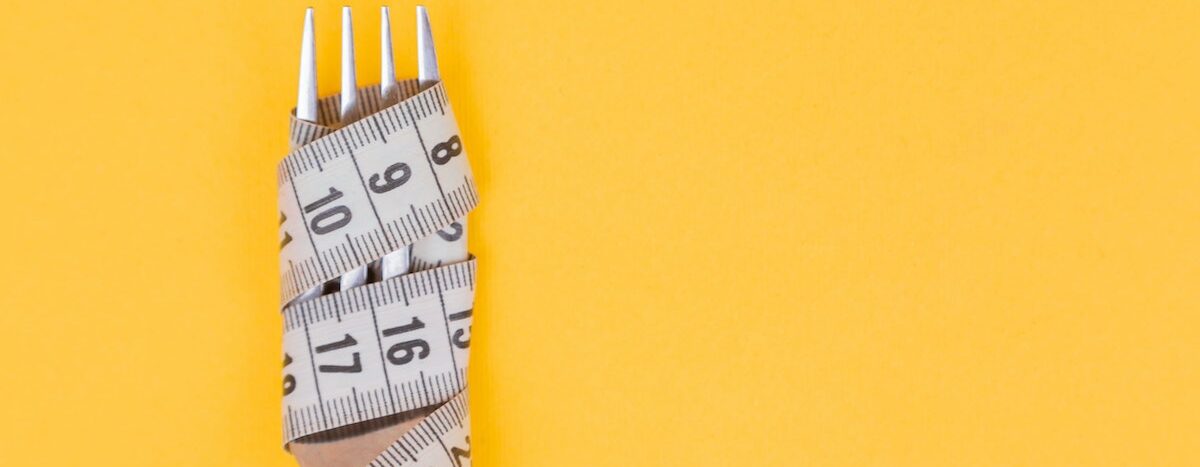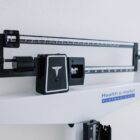
I used to talk about calories all the time. In fact, calorie counting was one of the main strategies I used to help clients lose weight. To be fair, my calorie counting days were a long time ago (more than 12 years) and luckily, they didn’t last very long. I quickly realized there were better and more enjoyable ways to help someone reach their health goals.
Today, I rarely bring up the subject of calorie counting and I never use it as a tool to lose weight.
You see, calorie counting can work. And it does for some people. If it works for you, that’s great! However, the downfall of calorie counting is that it can easily become obsessive and limiting. Thus, it has the potential to take someone farther away from their goal of optimal health instead of closer to it.
Here are some signs that calorie counting may not be the healthiest path for you:
- You feel guilty or bad about yourself if you go over your calorie limit
- You obsessively think about calories and food
- You say no to experiences (such as dinner with friends) because you won’t have complete control over how many calories go into your meal
- Your daily food choices are solely based on the amount of calories a food contains, instead of your desire for that food
- If you have hit your calorie limit for the day (or meal) you will stop eating, even if you are still hungry
- Calories trump hunger/satiety cues when it comes to eating
- You experience symptoms of possibly not getting enough food to eat (like feeling tired throughout the day or brain fog) but still don’t eat more because it would exceed your calorie limit
- You aren’t seeing the “results” you want but continue to count calories religiously
- There is no room for flexibility in your diet
Calories in versus calories out, right? Maybe not. Relying solely on calorie intake to determine your body’s needs is an extremely limited way to look at your body. Plus, it doesn’t take into account things like hormonal imbalance, insulin resistance, digestive issues, stress levels, nutrient intake, where you are in your cycle if you experience menstruation, lifestyle, activity level and thyroid function.
Relying solely on calorie intake to determine your body’s needs is an extremely limited way to look at your body.
So, how do you stop counting calories and what exactly should you do instead—especially if you are looking to reach a health goal?
- Ditch your tracking device. Delete the app you’re using or throw out your food journal. If this is hard for you, then that is probably another sign that you should stop. It’s often a sign that calorie counting is controlling you more than you are controlling your calories. However, you don’t have to do it on your own. Working with a therapist or dietitian can help make the transition easier.
- Tune into your own body. Start paying attention to when you feel hungry and when you feel full. Awareness is key! If you notice you are hungry, try to honor that and eat. If you notice you are full, try to honor that and stop eating. Getting in touch with your hunger and fullness cues takes time, so be patient and gentle with yourself. The more you tune in, the easier it will be. Also, you will slowly start to eat based on what your body actually needs instead of what you have been told to believe it needs.
- Focus on nutrients, not calories. Focusing too much on calories and not enough on proper nourishment will often leave you feeling depleted and restricted. Not exactly the ideal image of health and vitality, am I right? Instead of limiting your calories, focus on nourishing your body with plenty of vegetables, fruits, healthy fats, proteins and whole grains.
- Get support. It can be hard to release calorie counting, especially if it has worked for you in the past. And just to be crystal clear, I will never suggest counting calories, but I will support you if that is something that works for you and you’re not interesting in stopping. I will simply make sure you are doing it in the healthiest way possible. However, if you are ready to release this practice and eat based on principles of abundance, instead of restriction, reach out for support. To me, another dietitian, your therapist, or even your friends can all help make this transition so much easier.
If you want to ask questions or more about calorie counting and other gut health topics, be sure to check out my Facebook group, Healthy Gut Support.
- Eating Behavior (47)
- Grocery Shopping Tip (9)
- Gut Health (42)
- Healthy Eating (49)
- Low FODMAP (13)
- Nutrition Articles (32)
- Recipes (27)
- Uncategorized (4)



